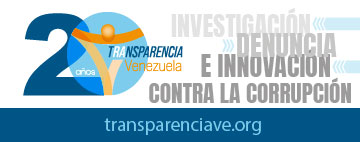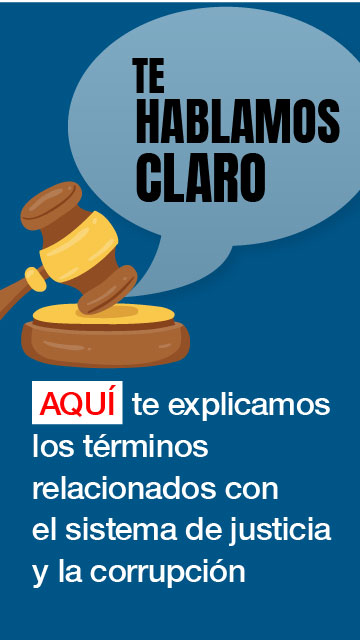 The Supreme Tribunal of Justice put in the safe all the information regarding the income of civil servants, padlocked it and, then, threw the key out. In denying the request of the association Espacio Público to know the salary of the Comptroller General of the Republic and the pay of the agency staff, the highest court turned the income of the civil servants into the best kept secret of the Bolivarian Republic.
The Supreme Tribunal of Justice put in the safe all the information regarding the income of civil servants, padlocked it and, then, threw the key out. In denying the request of the association Espacio Público to know the salary of the Comptroller General of the Republic and the pay of the agency staff, the highest court turned the income of the civil servants into the best kept secret of the Bolivarian Republic.
But the bolt imposed by the Constitutional Chamber, with presentation of the Justice Carmen Zuleta de Merchán, it is not limited to the assets of the officials. In fact, it extends to all issues of the public sphere, since the judgment imposes restrictions to the exercise of the right to information.
In the judgment, Zuleta de Merchán decides that “in the absence of express legislation, and to safeguard the limits of the exercise of the fundamental right to information, it is necessary: i) that the petitioner of the information expressly manifests the reasons or purposes by which requires the information; y ii) that the magnitude of the information that is requested be proportional with the utilization and use intended to give to the requested information”.
Based on these premises and armed with the right to privacy, el T.S.J. rejected the request of Espacio Público because “does not prove how the requested information would be useful for citizen participation towards transparency of public administration. In other words, it does not seem proportional the magnitude of the requested information towards transparency of the fiscal management, not even the specific actions for which the requested information would be used”.
The Justice Pedro Rondón Haaz abstained from the voting arguing that at “no point in the process the disclosure of the identity of the officials with their respective salary was requested, what was intended with the protective action was to know the salary scale managed within the Office of the Comptroller General as part of the right of every citizen to know the income of the civil servants and what this might show about their quality or status of life”.
Ultimately, with this resolution, el T.S.J. not only “protected” the accounts of the civil servants, but added another obstacle in the way to the citizens who want to be well informed on public affairs.
Extract of the judgment
The Chamber confirms that the plaintiff part does not prove how the requested information would be useful for citizen participation towards transparency of public administration. In other words, it does not seem proportional the magnitude of the requested information towards transparency of the fiscal management, not even the specific actions for which the requested information would be used. Reason why, according to the Chamber’s criteria, there is not legitimate title to tolerate the invasion of the constitutional right to privacy of the Comptroller General of the Republic and the rest of civil servants assigned to the comptroller body.








